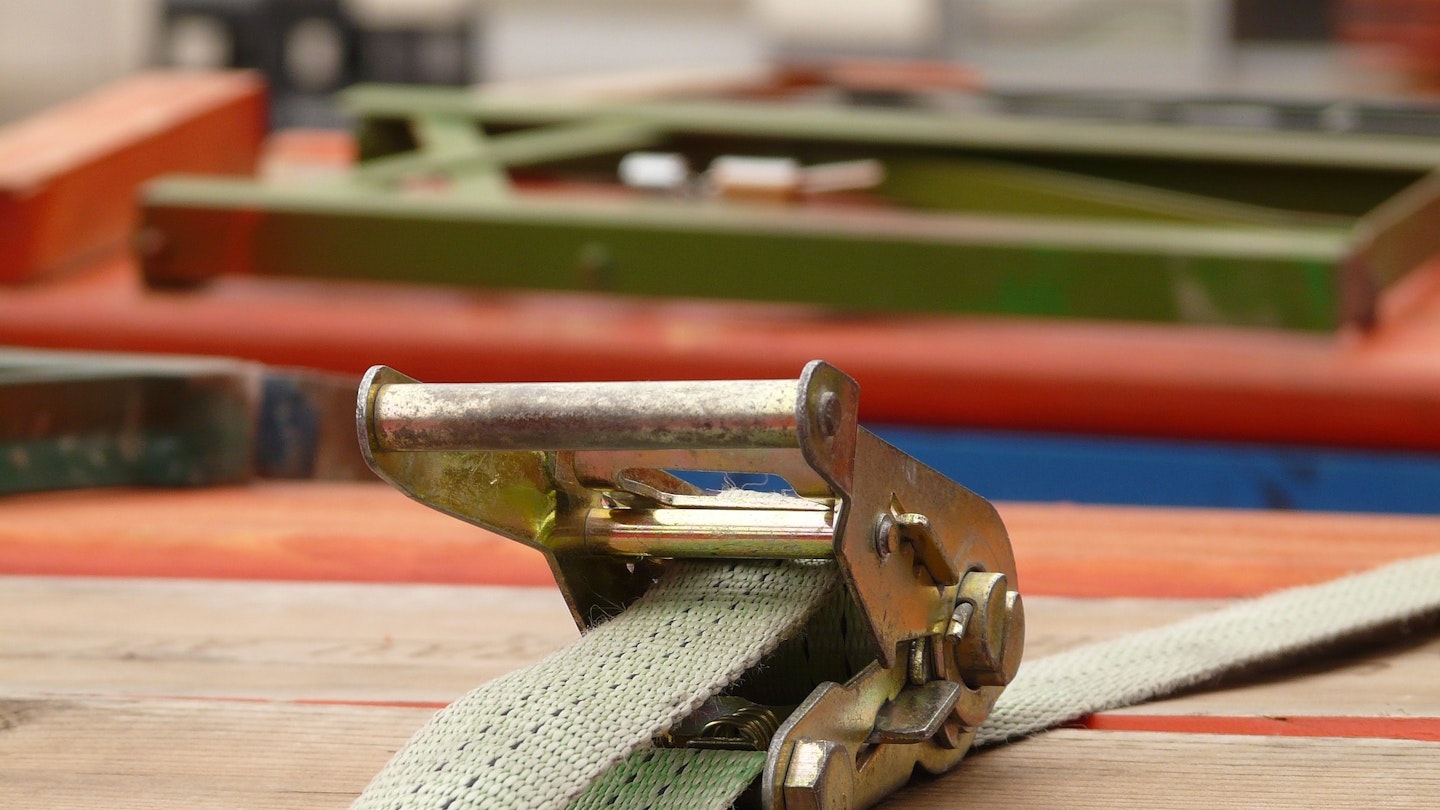Ratchet straps are essential for any van or trailer transporting a heavy object, and most modern-day cars now have pinion points in the boot where you can secure a ratchet hook.
There are many ways to secure a load to your trailer if you’re transporting a vehicle from one place to another on a flatbed or in a trailer. If you think just using a winch is enough, then be in no doubt, you must secure your load correctly with ratchet straps.
As well as stopping what you’re transporting from bouncing about, you will also put yourself and others in the best position possible in case of an accident.
DVLA guidance
According to the DVLA, anything over 400kg must be secured down with load-rated nets or Ratchet Straps to the bed of the vehicle and you must never use a knot in any part of the ratchet strap which is under tension.
Tips on buying and using ratchet straps
Due to the way ratchet straps are made, they lend themselves to being shock absorbent. The polyester will stretch and it’s always a good idea to make sure your ratchet straps are replaced after an incident, or they show any signs of wear and tear. Failure to do so may lead to the ratchet straps breaking when you need them the most.
There are many ratchet straps on the market and a good bit of buyers’ advice would be to buy the ratchet straps you need, not ones that you may think you need.
If you will be transporting heavy goods, make sure you get the straps that can support the biggest payload which you will be transporting. If you’re going to be using them for securing luggage, like a kayak, to your roof bars, you probably won’t need straps that will secure up to five tonnes of weight. While they’ll do the job, you might want to save yourself a little bit of money.
If you’d like some help understanding the features of ratchet straps, head to the bottom of this page for our buyer’s guide.
Here are the best ratchet straps:
These heavy-duty straps with ratches made of polyester and plastic are 6 meters in length and can hold up to 2,000kg, so perfect for a motorbike and lightweight sports cars. While their strapping tensile force is two-tonne, their straight tractive force is also impressive with a one-tonne max load.
The strong ratchet straps will make sure that no matter what you’re using these for, camping, caravanning or securing a load on your trailer, you’ll be able to get the job done.
These thin ratchet straps have big capabilities, each strap is capable of securing 635kg great for the back of your van or for your trailer. The S-hooks on the end of each strap is coated in plastic to reduce the risk of scratching any paintwork while strapping down.
This four-pack will help you secure your toolbox in your van and anything else you may need to give you peace of mind while driving around.
.png?auto=format&w=1440&q=80)
Do you have a roof rack on your car or van? These might be the ideal set of straps for you if you’re carrying luggage on your roof.
At over four meters in length each strap will hold up to 226kg and a break strength of 680kg, we don’t think anyone would ever be carrying that much luggage on their roof racks, but the peace of mind is there. Each strap has a plastic-coated S-hook to protect against weathering and any scratching of paintwork. The ratchets also have an ergonomic rubber handle to help you fasten the straps.
These are super heavy duty. Up to 5 tonne strapping capacity and tractive capacity of 2,500kg. If you’ve got some serious weight to strap down, these are the straps for you.
The polyester webbing is inherently shock-absorbent, so if you have to put on the brakes quickly or you have an accident then the webbing will help to slow whatever your strapping down and not give it a sudden stop.
Ratchet Straps: Terminology explained
Tractive force
The term tractive force can either refer to the total traction a vehicle exerts on a surface or the amount of the total traction that is parallel to the direction of motion. In this instance, it refers to the force which the ratchet can withstand upon the strap.
Tensile force
Tensile force is the stretching force acting on the material and has two components – this would be applied to the strap or ratchet if you decided to use it for towing, for example.
S-hooks
These are the hooks on the end of the ratchet straps, so called because they look like an S.
Break strength
Breaking strength is the ability of a material to withstand a pulling or tensile force.

.png?auto=format&w=1440&q=80)
.png?auto=format&w=1440&q=80)
.png?auto=format&w=1440&q=80)